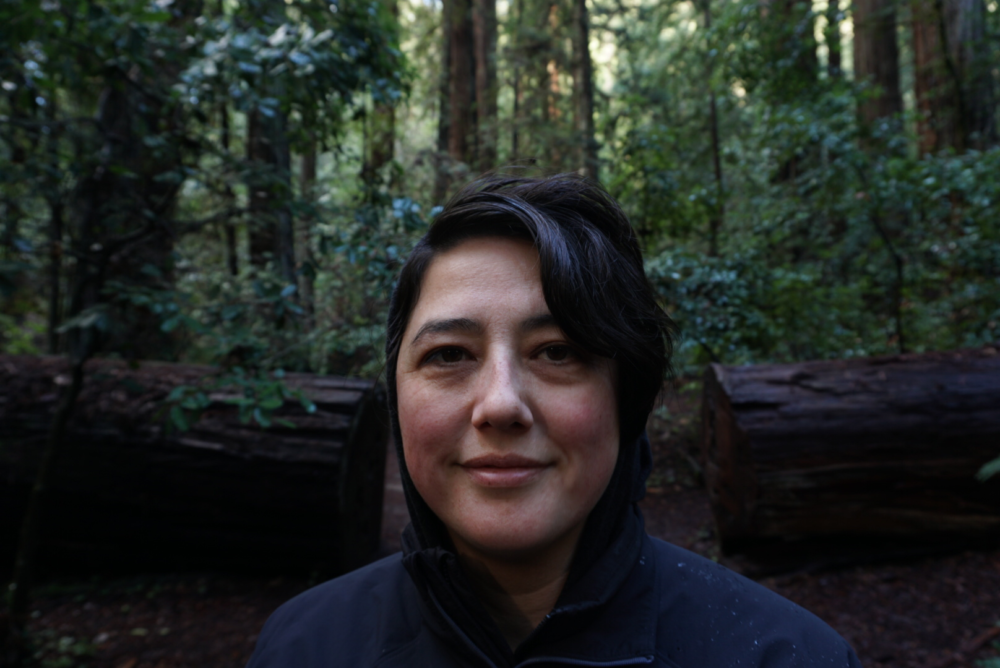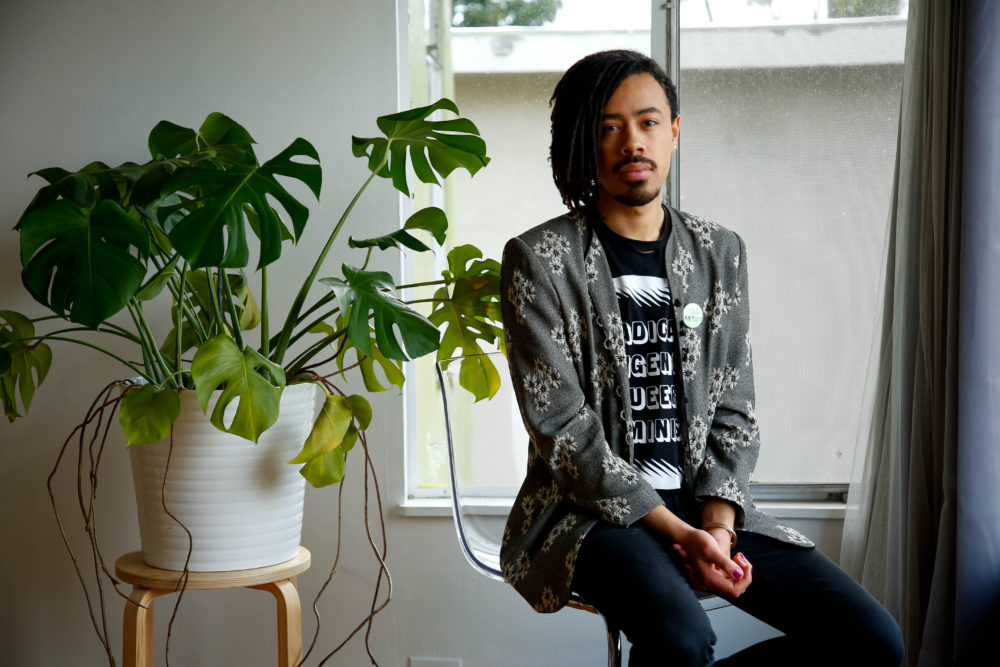Submittable is over the moon to announce the Eliza So Fellowship Winners for 2019. We received so many incredible manuscripts and applications from Native American and US immigrant writers, making this year’s selections especially challenging. Our sincere thanks to everyone who submitted, to our judges, to our reading team, and to those who helped us spread the word. For more on the 2019 fellowship, please see this announcement. Information about the 2020 fellowship will be available in December of this year.
The Eliza So Fellowship Winners for 2019 are Lehua Taitano, selected by Joan Naviyuk Kane, and Alan Pelaez Lopez, selected by Marcelo Hernandez Castillo.
Our finalists are Christine Ma, Kanika Agrawal, Jean Ho, Pingmei Lan, Michael Leeb, Ruby Murray, Gwendolyn Edward, and Valerie Jackson. Please join us in celebrating these phenomenal writers. Find more about the Eliza So Fellowship Winners for 2019, their book projects, and judges comments below:

About Lehua Taitano:
Lehua M. Taitano is a queer, indigenous CHamoru writer and interdisciplinary artist from Yigu, Guåhan (Guam) and co-founder of Art 25. She is the author of two volumes of poetry—Inside Me an Island (WordTech Editions) and A Bell Made of Stones (TinFish Press). Her chapbook, appalachiapacific, won the 2010 Merriam-Frontier Award for short fiction. She has two recent chapbooks of poetry and visual art: Sonoma (Dropleaf Press) and Capacity (a Hawai’i Review e-chap).
Her poetry, essays, and Pushcart Prize-nominated fiction have appeared in Fence, Kartika Review, Poetry Magazine, and others. She has served as an APAture Featured Literary Artist via Kearny Street Workshop, a Kuwentuhan poet via The Poetry Center at SFSU, and as a Culture Lab visual artist and curatorial advisor for the Smithsonian Institute’s Asian Pacific American Center. Taitano’s work investigates modern indigeneity, decolonization, and cultural identity in the context of diaspora.
From Lehua About Her Project:
A Queer Ornithology will be my third book of poems, and like my first, it is an exploration of a tangibly intangible thing, which is to say, a moment, a happening, an encounter blossoming into and returning to and folding back and exploding outwardly and unto the self. It is becoming more-so the archive of ongoing revelation than a gathering of sound, though there’s an abundance of precisely that. What I mean to say, more unprecisely, is that the title of this book alighted on my tongue when I became still enough to listen, rather than just quiet enough to hear. When I became a likely foliage on which tiny clawed feet might perch (but rarely do). I asked the birds to come, and to my skeptical delight, they came. But an invocation involves more than spectacle, and as I have found, it demands more than simple attention, more than even arboreal listening. The birds don’t need me to speak for them, no no. Rather, I call on them to carry my own speech, to scratch at the litter of my own contemplation, to feather something into the world of languages that after all, are all related.
For those who delight more in the seed of things, I can say that these poems investigate queer, genderfluid indigeneity, and interspecies-relational philosophy through deep observation of wild birds. I invite the birds to my garden via ceremonial invocation, dream, and a literal cultivation of habitat. The poems are influenced by my own observations, which I think are superbly scientific in nature, meaning guided by curiosity and hypotheses, and they further draw from historical ornithological and ontological texts (that, by the nature of their historicity, reflect Western practices of observing and cataloguing avian species and establishing so-called “standards” of natural philosophical thought). One might easily guess who’s missing from said history. I seek to offer an amendment. A revision. A much much much older lens, still acute and focusing here in modernity, as ever. A queer, indigenous lens, kaleidoscopic in all its apertures. Research materials that stand in stark contrast to each other then, all things considered, include ornithological and theoretical texts like Pierre Belon’s Book of Birds (1555), Alexander Wilson’s American Ornithology (1808), Florence Merriam’s Birds Through the Opera Glass (1890), Jean-Paul Sartre’s Being and Nothingness, Tildeman and Cosler’s Ethno-ornithology, and Evan Pritchard’s Bird Medicine, Guampedia, and Dale Turner’s This Is Not a Peace Pipe.
From Joan Naviyuk Kane:
“Prescient, precise, and dynamic, the poems of this year’s winner cohere into a body of work that engages its readers in its subjects of climate crisis, gender, relationship to land and each other. The poems impel and compel: how could its readers remain actionless? Through the manuscript’s cognitions, images, and lyricism, the poet writes from experience and deft observation without succumbing to the preponderant bombast of a self-serving I. This writer balances the diction of modernity with the profound observation of the world that surrounds us—its species, shores, and stories of the self despite the legacies of empire that yet may prove our demise, absent more work like the poems here, and the partnership of those who make and read them.”

About Alan Pelaez Lopez:
Alan Pelaez Lopez is an Afro-Indigenous poet, collage and adornment artist from the southern Pacific coast of Oaxaca, México. Their writing has been nominated for The Pushcart Prize and “Best of the Net,” and has been published in POETRY Magazine, Puerto del Sol, Everyday Feminism & elsewhere. Their debut collection, Intergalactic Travels: poems from a fugitive alien, is forthcoming from The Operating System Press (2020). More at www.alanpelaez.com and @migrantscribble.
From Alan About Their Project:
Libélulas is a choreopoem, a poetic form that blends music, storytelling, and dance developed in 1975 by recent ancestor, Ntozake Shange. My manuscript-in-progress traces the spiritual and emotional life of an unnamed Zapotec toddler who is forcibly removed from their village and must continuously reconfigure who they are in an age of displacement and dispossession. The child’s only connection to home is the figure of the dragonfly. Throughout the choreopoem, dragonflies come to the toddler in dreams, visions, and hallucinations. Each dragonfly is rendered a voice, and each dragonfly assumes the position of ancestor and/or poet in an attempt to bring the child closer to home.
From Marcelo Hernandez Castillo:
“Libélulas is an extraordinary manuscript that imbues elements of music, song, dance, and theater into its poetic sensibilities and follows the form and tradition of the choreopoem developed by Ntozake Shange in 1975.
Familiar (and often seemingly innocuous) sites of modernity such as the text and WhatsApp message serve as a conduit with which the speaker highlights irreconcilable absences within families separated on either sides of borders created by the violence of settler colonialism.
I was moved by this manuscript’s haunting engagement with modes of communication both at the spiritual and technological level and the anxiety and helplessness the speaker’s family faces as the manuscript traces the life of an unnamed Zapotec toddler who is removed from their village and whose only connection to home is the figure of the dragonfly. The manuscript, among other things, contrasts a text message as both a phenomenon of mercy for its immediateness and ability to create the illusion of closeness while also an object/Text of heightened contestation that magnifies that pain of distance. Simultaneously, it is also through the libélulas, the dragonflies which come in dreams, visions, and hallucinations, that the child, and later the adult speaker, is able to reconnect and be brought closer to home, though the idea of home always seems out of reach.
Libélulas, the manuscript, honors multiple avenues of communication, whether contemporary or ancient (and contemporary in their ancientness) as alternate ways of reaching those whom we have lost, or who we are slowly losing. I look forward to seeing this project unfold and offer insight into how it is we grieve, celebrate, and pray for others whom we might never be able to reach.”
The Eliza So Fellowship Winners for 2019 wrote blogs for us: read them here and here.
**Photo of Alan by Jessica Alvarenga
